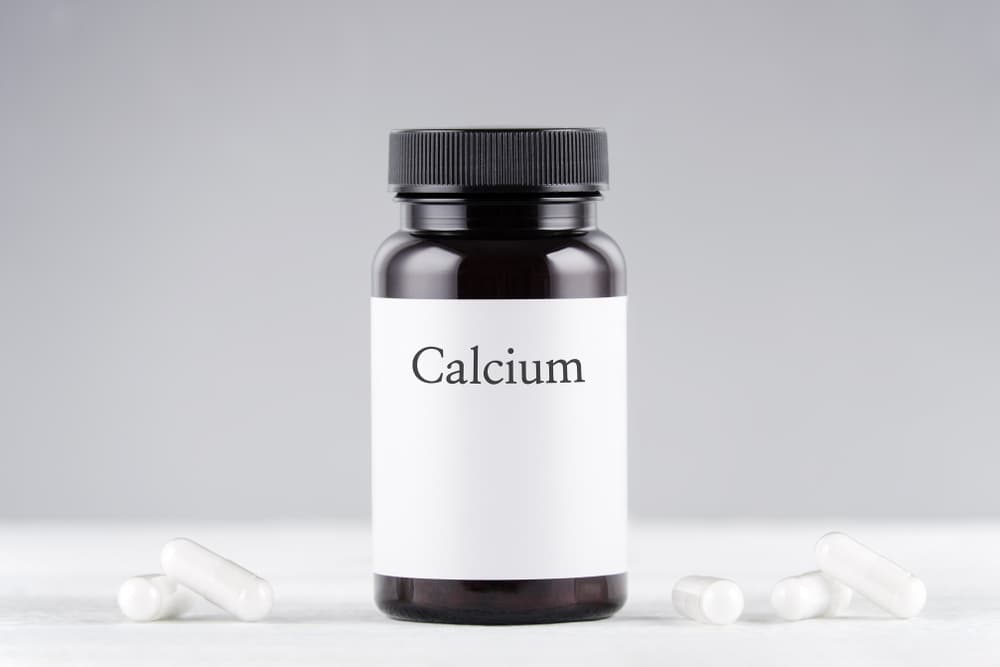Calcium for Dogs: Why They Need It

We often hear about the importance of calcium in humans, especially in growing children and older adults. You’ve likely seen the ads encouraging children to drink their milk for strong and healthy bones. Or maybe you know someone who takes a daily calcium supplement to ward off osteoporosis. But what about our dogs? Should we be worried about their calcium intake too?
Although true calcium deficiency isn’t common in dogs—largely thanks to the use of commercial pet foods—there are several disorders that can cause your dog to have a low calcium level.
Low calcium can be life-threatening, so it’s important to understand the warning signs and know how to prevent and address low calcium in dogs.
What Is Calcium?
Calcium is an essential mineral that all animals need in order to function. The vast majority of the calcium in our bodies is located in our bones and teeth, but calcium plays a role in other areas of the body as well.
Dogs—like humans—get calcium through their diets. Dietary ingredients like bone meal and whey protein are included in many dog food formulations as a source of calcium and other nutrients. Many commercial dog foods also include supplements such as calcium carbonate to ensure your dog receives the recommended amount of dietary calcium daily.
If your dog doesn’t get enough calcium, over time the body may begin to leach calcium from the bones to make up for the deficit.
Why Do Dogs Need Calcium?

Dogs need calcium for all the same processes that humans do. Calcium is an essential building block for bones, and the balance of dietary calcium and phosphorous is especially important for young, growing animals.
Pregnant and lactating dogs use high amounts of calcium to maintain the growing fetuses and produce enough milk to sustain the litter.
Calcium also plays a role in the contractions of muscles—everything from the skeletal muscles that allow your dog to run, to the smooth muscles in organs like the intestines, to the cardiac muscle that pumps blood throughout your dog’s body.
Calcium is also involved in several feedback loops and hormone signaling pathways in the body, which means that abnormal levels of calcium can quickly lead to other problems, too.
With so many important functions throughout your dog’s body, it’s safe to say that calcium is essential for your dog’s health!
Can Dogs Have a Calcium Deficiency?
It is possible for dogs to develop a calcium deficiency. Dogs can have low calcium due to inadequate dietary intake, loss of calcium in the urine or stool, or an imbalance of calcium mechanisms in the body.
When the calcium deficiency is mild, many dogs will not have any symptoms. A severely low calcium level can cause tremors, seizures, abnormal heartbeat, stiff gait, restlessness, hypersensitivity, rubbing the face, disorientation, muscle cramping, and increased drinking and urination.
Calcium deficiency, or hypocalcemia, is diagnosed with a blood test. A calcium level is often included on blood work panels. If your dog’s calcium level is low, your veterinarian may recommend an additional test called an ionized calcium level to further evaluate the amount of free calcium in your dog’s blood, which is the portion of calcium actively available for body functions.
Many different conditions can cause low calcium levels in dogs, including:
- Poor diet
- Hypoparathyroidism
- Sepsis
- Severe trauma
- Eclampsia
- Pancreatitis
- Protein-losing enteropathy
- Kidney failure
- Diabetes mellitus
- Urethral obstruction
- Ethylene glycol (antifreeze) toxicity
In order to treat your dog’s calcium deficiency, your veterinarian will first need to determine what caused the low calcium level. Additional diagnostics such as blood work, diagnostic imaging, and urinalysis may be necessary to fully evaluate the problem.
Common Sources of Calcium for Dogs

Just like humans, dogs get calcium through the foods they consume. Commercial dog foods that meet AAFCO standards are complete and balanced, meaning that they provide appropriate levels of nutrients, vitamins, and minerals to meet the needs of the animal that the product has been labeled for.
Dog foods often include ingredients such as leafy greens, bone meal, and organ meats like liver to provide adequate levels of calcium. Most commercial dog foods also include vitamin and mineral supplements to ensure your dog is receiving an appropriate balance of essential nutrients.
A healthy dog eating a commercial dog food typically does not need any additional source of calcium. However, problems can arise for dogs that are eating a homemade or raw meat diet that is not complete and balanced. If your dog is not eating a commercial dog food, make sure you consult a board certified veterinary nutritionist to ensure your dog’s diet contains the recommended amount of calcium and other nutrients.
Calcium Supplements for Dogs

Most healthy dogs that are eating a complete and balanced diet do not need a calcium supplement. Too much calcium can also cause problems for your dog, so you should never give your dog a calcium supplement without first consulting your veterinarian. If you are concerned that your dog may have a calcium deficiency, it is important to first see your veterinarian to diagnose the underlying cause.
If your dog has been diagnosed with low calcium, the treatment will focus on supplementing calcium and correcting the underlying cause. If your dog’s calcium level is severely low or life threatening, your veterinarian may recommend hospitalizing your dog to administer an intravenous calcium supplement and fluids.
Once your dog is stable, you may be given an oral calcium supplement, usually in the form of a tablet, to administer at home. Some dogs may also be prescribed calcitriol, also known as Vitamin D3, which helps them absorb calcium from their digestive tract.
After your dog has started calcium supplementation, your veterinarian may recommend regular rechecks and monitoring of calcium levels to ensure your dog is taking the appropriate dose.
Never stop the supplement abruptly or change the dose without first talking to your veterinarian.









